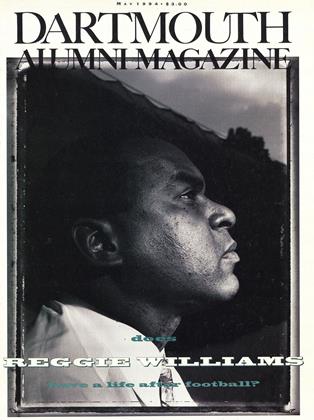Prof's Choice
These are novels that I happen to like, and that my students have read and discussed with pleasure. They are also quite diverse, indicating this art-form's extraordinary breadth.
Madame de Lafayette, The Princess of Cleves (Meridian Classic, 1989) Dating from 1678, this is considered the first truly important novel. Written by a woman for female readers (mosdy), it reminds us that the novelistic genre could never have gained such popularity if not for the leisured and often bored women who have formed its principal audience. This short novel is about a leisured woman who is bored. But she is virtuous, too, and when she becomes infatuated with a handsome man who is not her husband she squirms with moral anguish.
Samuel Beckett, Murphy (Grove, 1970) A work that endeavors to destroy the novel as an art-form, it takes description, narration, psychological realism, convincing dialogue all the staples of traditional fiction and passes them hilariously through a meatgrinder. Thus the heroine is described as: "Age: unimportant. Neck: 13 3/4". Wrist: 6". But the book has a serious philosophical purpose: to show humanity's yearning to pass from "doing" to "being."
James Joyce, Ulysses (Vintage, 1986) Like challenges? Try Ulysses, especially if you are tired of punctuation and capitalization. The final chapter goes on for 35 pages without much of either. This book usually requires the fortitude of group endeavor. Its hero is a man of peace, compassion, and rationality coping in a crazy world a modern, urban Ulysses who sails for 18 hours across a perilous city.
George Orwell, Coming Up for Air (Harcourt Brace, 1969) An obese, middle-aged, henpecked man living in a faceless suburb, decides to go fishing in the countryside as he did in his boyhood. But the old fishing hole is now a dump. Orwell s message is clear: we can't go back. The story is set against the First World War, which destroyed romantic idylls forever, and the impending Second World War (the novel was originally published in 1939).
Nikos Kazantzakis, Zorba the Greek (Simon and Schuster, 1971) On the surface simply the amusing account of an attractive rogue who gets away with murder and convinces his wimpish boss to be more adventurous, this work explores, more deeply, how to cope with loss in a world in which God does not exist.
Virginia Woolf, To the Lighthouse (Harcourt Brace, 1990) This novel explores women's liberation, marriage, masculine rationality versus feminine intuition, the wastage of time (again owing to the First World War), and how to cope with loss. It ends with a woman who resists what society expects of her in order to pursue art rather than homemaking.
Peter Bien
 View Full Issue
View Full Issue
More From This Issue
-
 Cover Story
Cover StoryReggie After Football
May 1994 By Brooks Clark '78 -
 Feature
FeatureBaker Tower Nighthawks
May 1994 By Ted Levin -
 Feature
FeatureCOOL STUDIES
May 1994 By KAI SINGER 95 -
 Article
ArticleDr. Wheelock's Journal
May 1994 By "E. Wheelock" -
 Article
ArticleWhy the Novel Matters
May 1994 By Karen Endicott -
 Class Notes
Class Notes1975
May 1994 By W. Blake Winchell
Article
-
 Article
ArticleADDRESS OF PRESIDENT ERNEST MARTIN HOPKINS AT THE OPENING OF DARTMOUTH COLLEGE, SEPTEMBER 23, 1920
November 1920 -
 Article
ArticleBoston University Club
JUNE 1930 -
 Article
ArticleMaestro '21
June 1941 -
 Article
Article"Do you, counselor
OCTOBER • 1987 -
 Article
ArticleBusiness Boot Camp
SEPTEMBER 1998 -
 Article
ArticleNEWS IN BRIEF
JANUARY | FEBRUARY 2014

